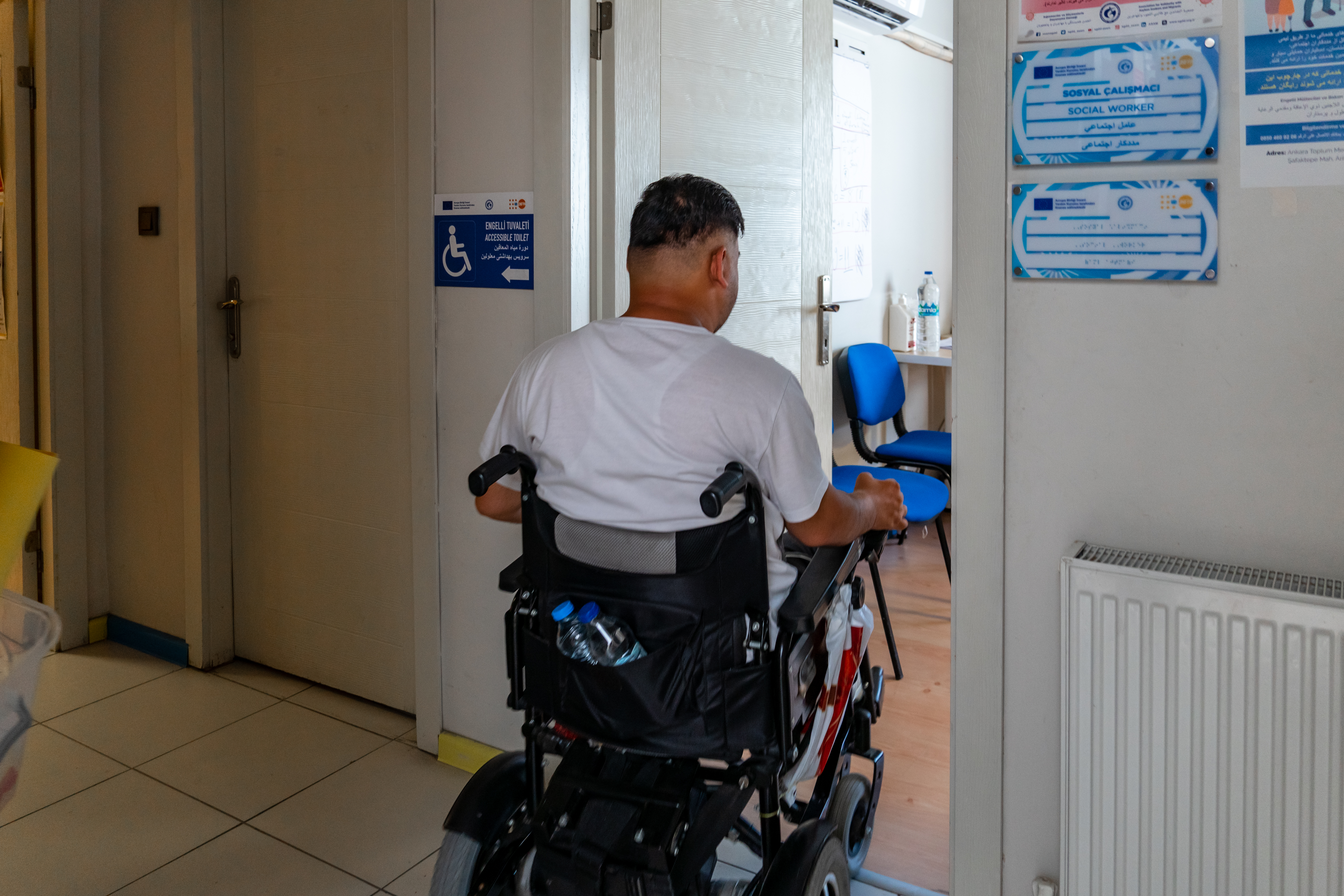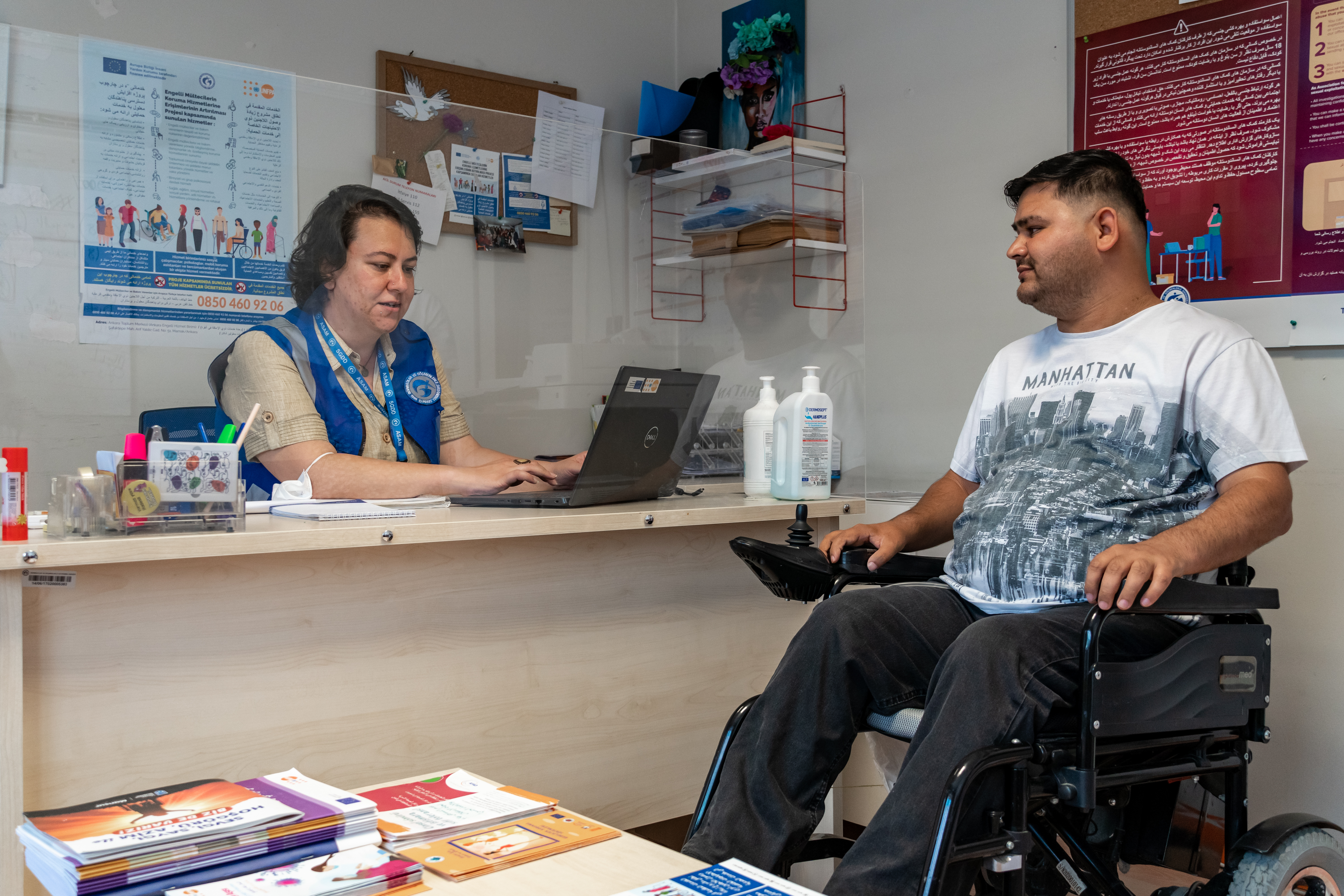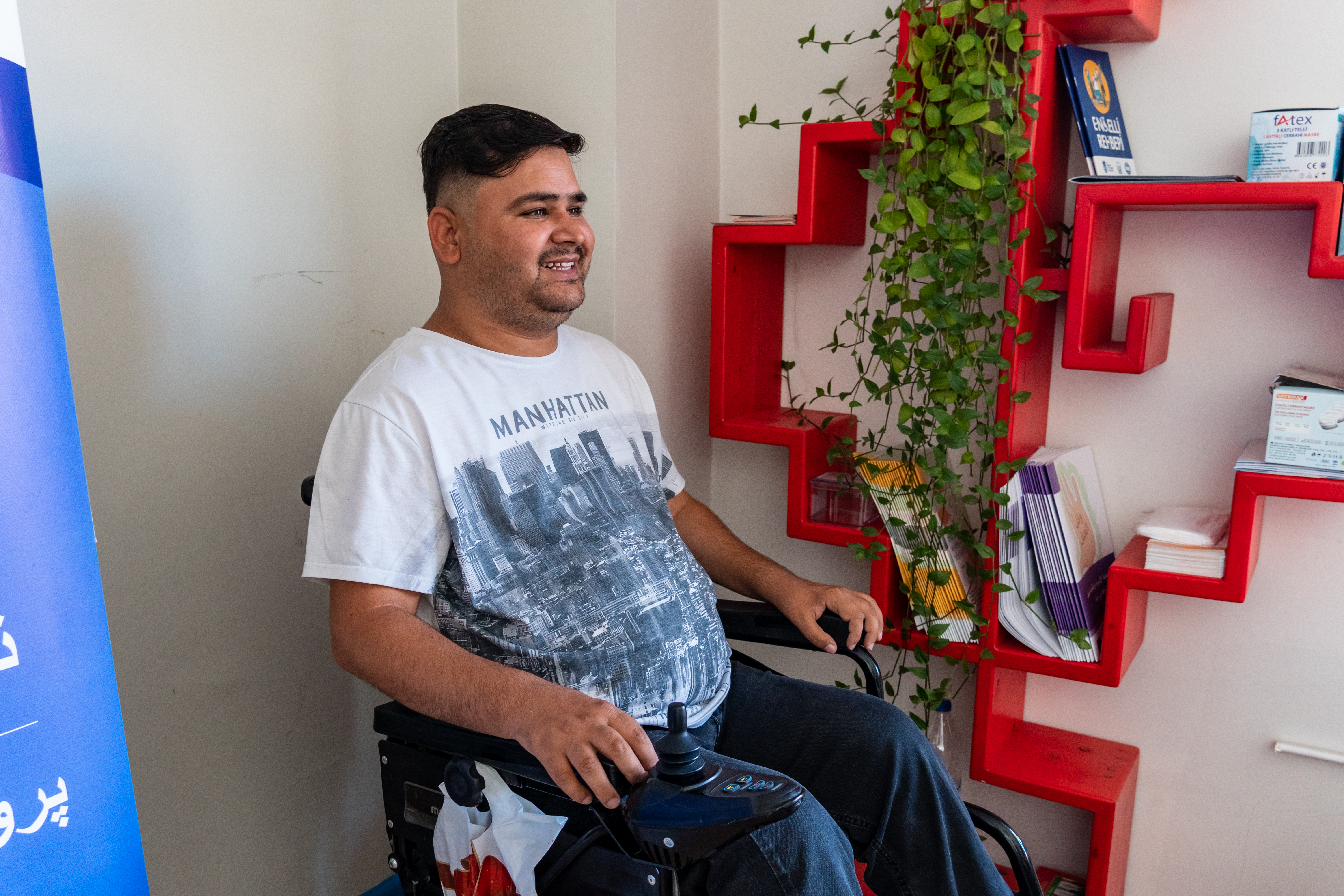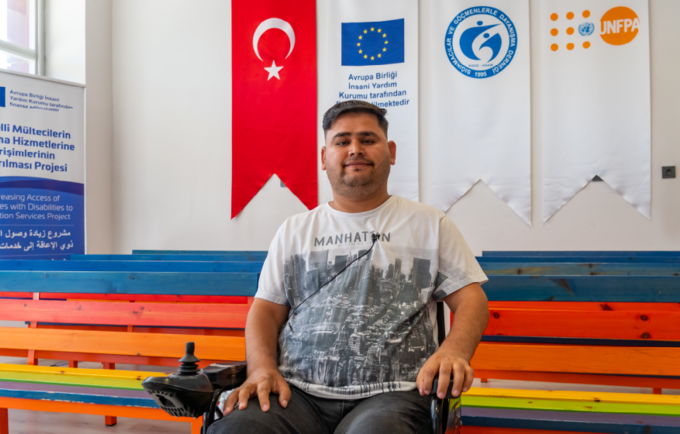Around 15% of forcibly displaced individuals in the world live with various disabilities. Almost one in five refugees in Türkiye lives with a disability. Many refugees with disabilities have difficulty accessing vital services or are unaware of their rights and services. UNFPA Türkiye, with the financial support of the European Union and in cooperation with the Association for Solidarity with Asylum Seekers and Migrants (SGDD-ASAM), provides specialized protection services for refugees with disabilities and their caregivers in Türkiye. Mohammed, 25, is one of them. Hear Mohammed's story from him, representing millions of people who have faced similar struggles, experienced similar experiences, and needed similar rights and services.
Ankara - It is Mohammed's biggest dream to enter the university and inspire people with disabilities like himself. Continuing his education despite all the obstacles she faces is his top priority. Beneath his shy appearance, there is a story of a difficult but hopeful life. Being forced to use a wheelchair due to his accident was not an obstacle for Mohammed as long as he could reach the point he wanted to reach.
We met Mohammed at our center in Ankara, with the support of European Union Humanitarian Aid and the Association for Solidarity with Asylum Seekers and Migrants (SGDD-ASAM). 25-year-old Mohammed immigrated to Türkiye from Afghanistan with his parents. They may have left behind the difficulties they faced in Afghanistan, but when they settled in Ankara, new challenges began. The process of getting used to a completely different country, whose language, culture and services it does not know. “If you do not know the language of the country you migrated to, there is someone around you who can neither speak nor guide you. As a person with a disability, it is even more difficult to get involved in outside life. At first, I had the most difficulties because of loneliness, this affected my psychology very negatively,” Mohammed describes those days in his words.

Mohammed, who was completely locked in the house with the pandemic, tried to ease his loneliness with novels, until he met our Ankara Service Unit and eventually felt that he was not alone at all. Mohammed has benefited from many different services at the center, from psychosocial support and hospital access support, to counseling support for the applications he needs. “With these supportive services, my life became easier, and I finally started to adapt to my new life,” says Mohammed.
What changed Mohammed's life, in his own words, was the psychological support he received from the center; “They guided me so well that I got out of that depressive mood, met people, started to socialize, making friends who understood me and had similar experiences with me, it was perfect for me.” Mohammed, whose self-confidence increased as he felt that he was not alone, took the first step towards his biggest dream with the support of the center:
Saying, “People with disabilities like us have difficulties in accessing education. I wanted to overcome this and I made an effort to do so,” says Mohammed, and explains that with the support of the center, he learned how to prepare for the exam and took the university exam. “My dream is to get into college and make a life for myself. I want to be a beacon of hope for people like me.”

Mohammed says that with the psychosocial support he receives from the center, he now feels more social, positive, closer to his dreams and an active part of society. Now, he is striving for his biggest dream of a college education. “I do not expect financial support, it is much more valuable for us that we can get to the point where we can earn our own lives with the services we receive.” He also thanks the center with his expressions. “I know that I am not alone anymore, and my belief that better things will happen in my life with these supports makes me more attached to life,” says Mohammed.
Within the scope of the “Increasing Access of the Refugees with Disabilities and Their Support Person to Protection and Social Services” project carried out in cooperation with UNFPA Turkiye with the support of the European Union's humanitarian funds and in partnership with the Association for Solidarity with Asylum Seekers and Migrants (SGDD-ASAM), refugees with disabilities and their support persons are supported to receive specialized protection services and ensure their equal access to rights and services. Through the service units in Ankara and İzmir, protection information counseling, psychosocial support, translation and referral services are provided in order to increase the access of refugees with disabilities to social protection and other services they need.


